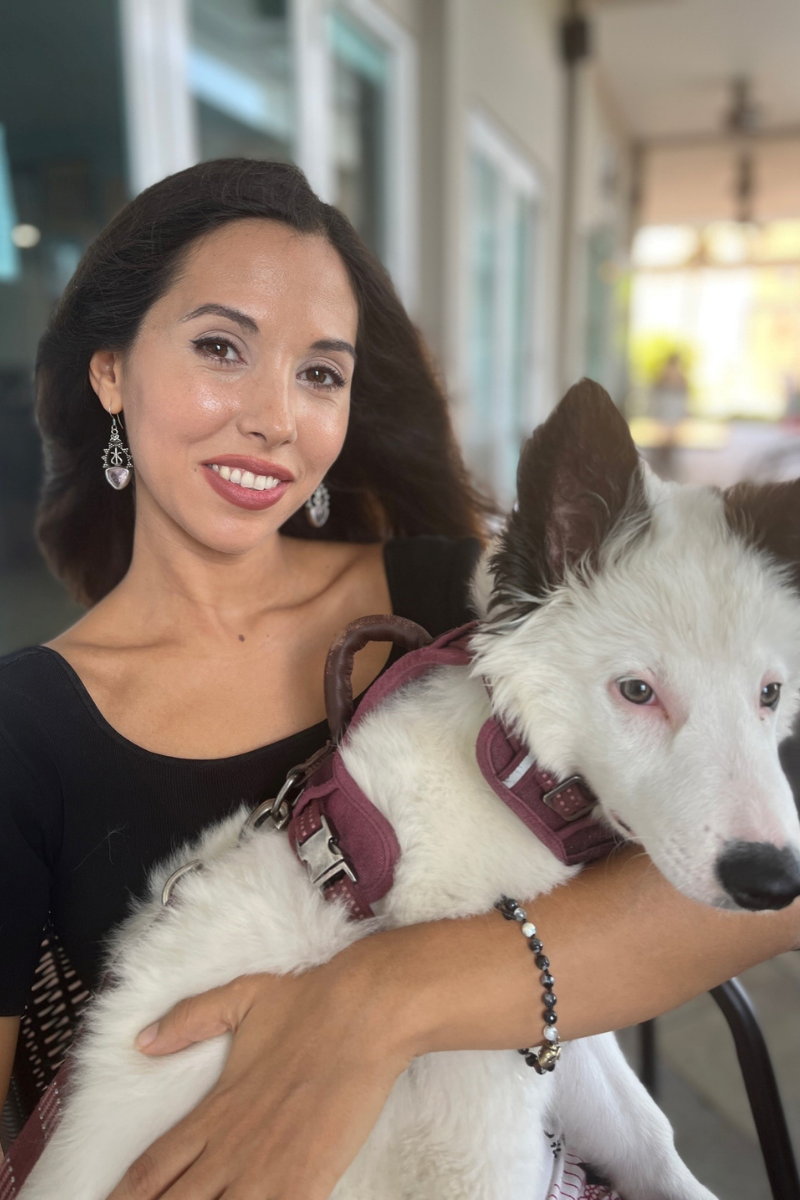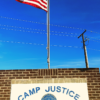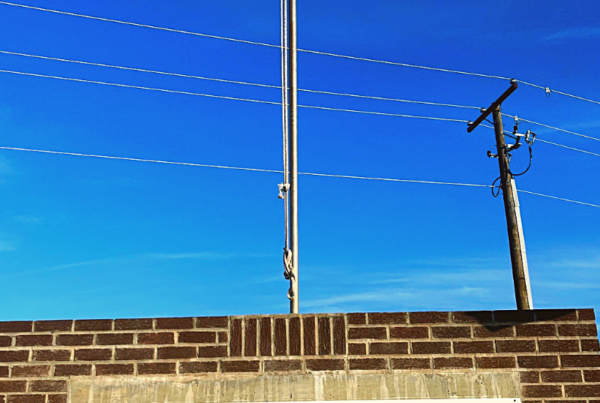SAN JUAN, Puerto Rico – Everyone remembers their last moment of normality. For Karla Hernandez, it was the fading daylight of December 18, 2020.
Her Utah-born husband Gerald was catching his last waves in the twinkling azure seas of the family-friendly Playa la Boca, Barceloneta, in Puerto Rico. Around 6 p.m., Karla walked casually toward a small river mouth opening to the popular surf spot as a few other surfers meandered out. She asked a fisherman (she guesses he was around 30 years old) the river’s depth – her eyes scanning the water for Gerald.
“I looked around and saw that I was alone,” Karla tells me softly over tea on a warm San Juan afternoon. “And he (the fisherman) just grabbed me, knocked me to the ground, climbed on top of me, put me in a headlock, and started choking me. I was fighting, fighting for my life, blacking out.”
The attacker warned Karla he had a knife, and when she saw the sparkling metallic jutting out from his pocket – a knife – her body froze as he told her that if she did not cooperate, he would kill her. The beautiful, articulate young professional recalls the rape in excruciating detail, the seconds that dragged into minutes, the panic rising in her throat as she worried what he might do to her once the deed was done.
“I’m very open to going into detail. I’ve learned throughout the police process that they (the authorities) will use the discomfort to keep you silent,” Karla continues.

Soon, as the assault ended, she spotted her tall, fair-haired husband materializing from the foamy waters and immediately called out to her husband, sending her attacker alarm-stricken off into the distance. While Gerald immediately knew something was wrong as he approached his trembling wife, Karla – quickly calculating the potential scenarios in her head – instinctively knew better than to tell him straight away what had just happened.
“I knew my husband would go looking for him, and it would potentially end very badly since the man was armed and possibly with other people,” Karla recalls. “So, I just told him we needed to go back to the car, and that is when I told him.”
But for the distraught couple, the nightmare was only just beginning. Even after calling 911, making a police report and spending the night in hospital with an anti-AIDS IV wedged into her arm while waiting for a social worker, Karla says her story was dismissed from the get-go. The police agent in charge of her case was unresponsive and failed to communicate with local businesses that had cameras in the area, she claims.
Months later the case file seemed forgotten, left to gather dust despite her persistent pleas for action. Other than a police identification lineup, which Karla had to beg them for on multiple occasions and was finally granted because of her persistence, she would have never even had an opportunity to identify her attacker.
“Once I was finally able to have my meeting with the prosecutor, behind closed doors and not allowing my husband to enter, they were unwilling to answer most of my questions, and told me there wasn’t any proof that what happened to me had actually happened,” Karla says. “They also told me that their suspect had the best lawyer in town, that if my case goes to court, they could shred me to pieces, and that once my case was being processed that his lawyer would have access to my information and my life could be at risk. All of this felt like an effort to intimidate me into dropping the case.”
This was all even though there was DNA evidence from the night of the incident, she adds.
In June – more than six months after the rape – Karla and Gerald finally hired their own private investigator, who, after conducting his investigation, provided them with a photo of his suspect, who Karla says looks just like her attacker, but that he was not present in the police lineup.
In November, after signing her testimony with the prosecutor, Karla was told they were planning to charge the suspect with a misdemeanor and close the case. After hearing this, Karla had the detective meet with the police and prosecutor to share his investigation in hopes of bettering the outcome of the case and convicting the right man. However, after reviewing the new information, they told the private detective they were not going to take his investigation into consideration.
According to Karla, the detective says he even went to the town and offered to share his info with the police/prosecutor in charge of her case, but they wanted nothing to do with him.
Now, more than 18 months on, Karla is still wrapped in the painful legal quagmire for justice. Local lawyers are afraid to take on her lawsuit against several branches of the Puerto Rican government, given the broader political ramifications. In June, judges denied the couple the opportunity to represent themselves.
Still, she is ready to do whatever it takes to keep fighting as her assailant remains free.
“Throughout all of this, up until today, everybody keeps telling me that this is just how things are, that’s just how the system is. Let it go, forget about it, move on, you don’t know who you are dealing with, etc.,” Karla notes. “Just because that’s ‘how things are doesn’t mean it’s how things should be. If I have to go the extra mile to be the exception to what they are used to and make it known that no matter what happens or what they do, I am not going away.”
She pauses for a moment.
“Then that is exactly what I am going to do,” Karla surmises. “So that they know there are women out there who will not tolerate this any longer.”
This is all going down despite the millions allocated to curb horrific levels of gender violence in the U.S. territory.
In 1996, Puerto Rico established domestic violence legislation to end impunity for perpetrators. Nonetheless, numbers continued to rise – especially in the aftermath of the devastating 2017 Hurricane Maria that decimated much of the tropical island, according to multiple investigations. A number of human rights organizations, including the ACLU, acknowledge that Puerto Rico has one of the highest rates of gender violence per capita on the planet.
Eventually, the crisis became too heinous to ignore. Gov. Pedro Pierluisi declared a state of emergency for the burgeoning gender violence situation shortly after being inaugurated in January. More than 60 women were murdered last year, representing a 62 percent uptick in femicide cases compared to 2019.
Typically, gender violence refers to physical, sexual, verbal, or emotional violence directed at individuals because of their biological and identifiable gender.
Officials have repeatedly stressed in interviews and public statements that change takes time and that the Department of Education is developing a curriculum to teach students about gender violence, and the attorneys general’s office would cultivate new training modules for prosecutors handling cases.
But as Karla’s impasse indicates, compounded by the notion that at least 21 women have been slain in Puerto Rico this year, the declaration seemingly has little on-the-ground benefit, even with the extra funds devoted to the issue. Femicide cases continue to capture headlines as perturbed activists still take to the streets demanding progress, and survivors like Karla push back against scare tactics in the agonizing quest for some semblance of justice and accountability.
Yet some advocates argue the problem runs deeper than political unwillingness. For one, a 2020 analysis in the Law Review of the University of Puerto Rico points out, “despite the fact that the victim of a crime is the one who suffers the direct and indirect consequences of committing the crime, the Constitution of Puerto Rico does not recognize any right during or after the criminal action against the accused.”
Nevertheless, as she continues her legal battle, Karla is taking psychological matters into her own hands having recently established a non-profit organization with her husband and fellow survivors, called the Vivo Alliance.
“This arose from my own experience and difficulties with the system to help others who have or are going through similar things,” she tells me bravely.
“My hope is that my experience can be used as a vehicle through which we can set a new standard in how sexual assault and gender violence are viewed and treated on all levels.”
The sluggish rehabilitation of confidence in Puerto Rico’s democratic institutions, can only be clawed back case by case.
“It’s not too late,” she insists. “The right thing can still be done.”
Change is coming. And Karla is just one of the many victims who wants everyone to know it, with or without the government’s support.






